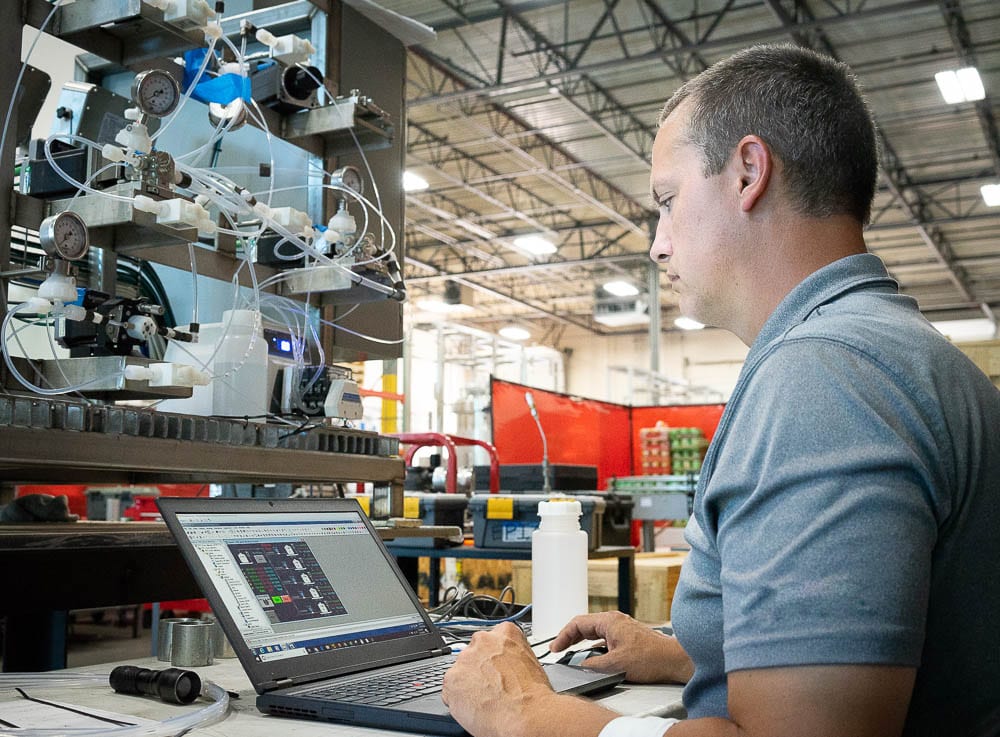Introduction
Experts can’t agree on how many jobs technology will replace or create – MIT looked at many studies that show wildly divergent projections on job loss and gain due to automation. In this article, we discussed Automation Engineer salary and about there functioning. Regardless, automation is here to stay, and businesses are using it to streamline IT, business, development, and service processes. Organizations in every industry are looking for automation experts to assist them in enabling, managing, and supervising enterprise automation as it grows.
Table of Content
- What does it mean to be an Automation engineer?
- What is the role of an Automation engineer?
- What are the responsibilities of an Automation engineer?
- Qualification & Experience
- Required Essential Skills
- Salary of Automation Engineer
- Final Words
What does it mean to be an Automation engineer?
Automation engineers are in charge of ensuring that their company’s production workflow is efficient. They implement sophisticated electrical and mechanical installation support to ensure optimal equipment output and strict adherence to safety requirements. They also handle daily technical assistance requests to optimize unique gear performance.
They should be familiar with the assembly process for various industry gear because they are also responsible for developing and executing company projects. Most automation engineers are in charge of training workers on the use of production equipment. They must have current and sophisticated knowledge of various programming language syntaxes to deal with automated machinery concerns.

Most automation engineers are in charge of automating machinery and optimizing robots. They must follow all company and industry rules while helping establish new practices. A personal computer is used to develop efficient automation plans and proprietary software for connecting and debugging various production equipment. They report on their progress to their department’s senior leaders and managers.
To establish productive projects, automation engineers need excellent organizing skills. They also need outstanding analytical and problem-solving capabilities, as well as excellent verbal and written abilities. The majority of automation engineers have a thorough understanding of common production systems. A bachelor’s degree in engineering is essential; further industry qualifications and relevant work experience are a plus.
What is the role of an Automation engineer?
Although automation has long been a staple of the manufacturing industry, it is still relatively new to the business, healthcare, and financial sectors. IT automation primarily focuses on service automation and QA testing automated processes outside manufacturing and factory automation. An automation engineer’s purpose in product or software development and business or customer service processes is to reduce faults, errors, and difficulties.
Businesses are increasingly adopting automated chatbots to help address customer concerns or lead consumers to the appropriate person, and automation engineers are assisting in implementing this technology. Automation is also used to improve the efficiency of IT help desk ticketing, service management, and delivering high-quality products and software with fewer flaws.
An automation engineer aims to reduce worker workload and increase efficiency and reliability by automating redundant or inconsistent human procedures.
What are the responsibilities of an Automation engineer?
In the field of information technology, an automation engineer is a person who creates automated software solutions. As an automation engineer, you must collaborate closely with other teams to identify and resolve issues by gathering requirements and automating processes. Sometimes, you’ll be requested to automate service or business processes, and other times, you’ll be asked to automate hardware or software.
You’ll be expected to do the following as an automation engineer:
- Identify areas where software processes can be automated.
- Create and run QA tests with the help of scripts that automatically test functionality.
- Databases, systems, networks, applications, hardware, and software must be tested.
- Bugs and quality issues in development, service, and business processes are identified.
- Install automation-related software and databases.
- Collaborate with other departments to see how automation might help with workflow.
- To design the greatest automation solutions, gather client, customer, or end-user needs.
Qualification & Experience
To work as an automation engineer, you’ll require a bachelor’s degree in computer science, computer engineering, or a related profession. You’ll want to enroll in a curriculum that covers robotics, databases, statistics, artificial intelligence, control systems, and artificial neural networks (ANN). Depending on the position, some employers will also require a master’s degree and experience with manual and automated testing techniques.
Automation occupations include engineering, science, and technology, but the abilities required vary depending on the business. To better understand the talents, tools, and education most relevant to particular businesses, look at several job descriptions for automation engineers in other industries.
Although automation is a relatively young industry, certifications are beginning to emerge to assist you in validating your automation abilities. You’ll need a broad technical foundation in IT, and there may be industry-specific certificates, but there are a few automation-specific credentials you can earn:
- ISA Certified Automation Professional (CAP)
- ISA Certified Control Systems Technician (CCST)
- ASTQB Test Automation Engineer Certification (ITSQB)
- IIST Certified Software Test Automation Specialist (CSTAS)
- IIST Certified Software Test Automation Architect (CSTAA)
- ISA Control Systems Engineer (CSE) Licensing
Required Essential Skills
As an automation engineer, you’ll require diverse technical and soft talents. You’ll need to know how to deal with systems, networks, hardware, and software, but you’ll also need to be able to interact and collaborate with other business units, clients, and customers.
Programming abilities in languages like C#, SQL, and Java are required for the position, but the languages and tools you’ll need to know will differ by industry. You’ll also require familiarity with analytics, robots, AI, and machine learning and a working grasp of mobile, online, and desktop operating systems. You’ll need to be a leader because you’ll lead cross-departmental efforts to streamline corporate procedures.
The following are some of the most popular automation engineer skills:
- Automation and robotics
- Artificial intelligence and machine learning
- Programming and coding experience
- Project management
- Agile, cloud, and DevOps
- Analytical and problem-solving skills
- Communication and leadership skills
- Experience in computer science or engineering
Salary is Director of Engineering Career
According to Http://Payscale.com Based on 80 salaries, an entry-level Automation Engineer with less than 1 year of experience can expect to make an average total compensation of Rs 297,098 (which includes tips, bonus, and overtime pay). Based on 714 salaries, an early career Automation Engineer with 1-4 years of experience gets an average salary of Rs 437,522. Based on 280 salaries, the average total income for a mid-career Automation Engineer with 5-9 years of experience is Rs 790,264. Based on 79 salaries, an experienced Automation Engineer with 10-19 years of experience gets an average total salary of Rs 1456,712. Employees with a late-career (20 years or more) earn an average total remuneration of Rs 2,095,238.
Final Words
Automation engineering is a good career option for someone with technical talents and a desire to work in the technology industry. In both technology and manufacturing, automation is a fast-paced business. As technology advances, it is expected that more activities will be automated.






